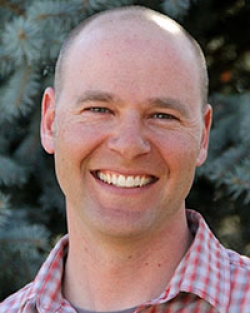Neal Christensen, PhD, LP
Neal comes from the Great Plains state of Kansas where he grew up and completed his graduate education. Coming to Utah in 2004 was a natural fit for Neal with his ever-growing interest and passion for combining the wilderness with troubled youth. Neal has worked with adolescents in venues ranging from urban psychiatric hospitals to outdoor ropes courses. In addition to working with adolescents, Neal has worked with young adults in college who struggled with issues such as adjustment to independence and life and career decision making. Neal has also worked extensively with adult men who experienced persistent and severe mental illness, dealing with such disorders as Schizophrenia, Bipolar Disorder, Post Traumatic Stress Disorder, and drug and alcohol addictions. Of high honor, Neal served and treated American combat and non-combat veterans at the Leavenworth KS, VA Medical Center. Through the multitude of experiences Neal had, he came to find his interest and skill in treating individuals struggling with significant social, emotional, behavioral, and cognitive related problems.
Neal’s passion for the wilderness and experiential learning came from many years working on and managing ropes courses. He helped to establish ‘best practices’ to maintain a high quality program. He enjoyed training and developing course facilitators’ technical skills and group facilitation skills. He himself has spent many hours employing his knowledge of strength based counseling and psychology while working with participants, from young to old, helping them to learn about themselves personally as well as group dynamics and communication skills.
In Neal’s pursuit of his doctoral degree, he completed his dissertation at a wilderness therapy program in northern Utah and served as primary therapist and Clinical Director from 2004 to 2013. He evaluated the effectiveness of wilderness therapy on increasing hope and motivation, enhancing personal agency, and reducing problematic behavioral and emotional symptomology. The study demonstrated positive outcomes and showed additional support for the use of wilderness therapy as an effective intervention to help troubled youth who struggle in traditional settings and other therapeutic treatments. He has utilized a multitude of therapeutic approaches to address mental health issues, and has great understanding of psychological assessment. Other areas in which he has had great success with are people who have experienced physical and sexual abuse, divorce and troubled family relationships, grief and bereavement, multicultural identity development, and sexual identity and orientation.


